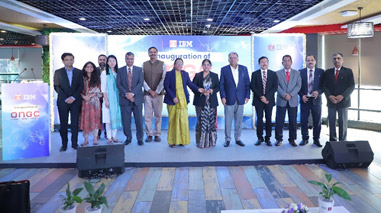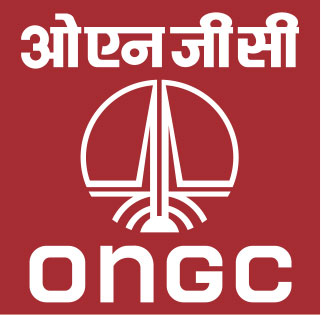Shared Finance Services is a step to outsource transactional jobs to free up management for core jobs: Chairman
“ONGC Shared Finance Services is a step to outsource repetitive transactional jobs to free up limited managerial time for more strategic and core jobs. We need to devote time to future planning and make significant strides in doing something new,” underscored Chairman & CEO ONGC Arun Kumar Singh after inaugurating Shared Finance Services on 14 December 2023. The ONGC Shared Finance Services developed in collaboration with IBM India Pvt Limited aims to centralize vendor payments on a single digital platform.
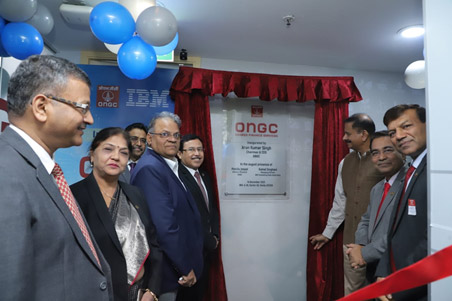
The Shared Finance Services at Noida was inaugurated by Chairman in the presence of the Board of Directors from ONGC and ONGC Videsh, including MD OVL Rajarshi Gupta, ONGC Director (Finance) Pomila Jaspal, Director (Exploration) Sushma Rawat, Director (Human Resources) Manish Patil, Director (Finance) OVL Anupam Aggarwal, CVO ONGC Ranjan Prakash Thakur, and Director (Finance) of MRPL Vivek Chandrakant Tongaonkar. The event also witnessed the participation of the senior leadership team of IBM which included IBM Consulting India-South Asia Managing Partner Kamal Singhani.

Sharing his idea of inaugurating some best-in-class facilities for the vendors of the Maharatna, Chairman explained that technology, today, plays a significant role in any business and so, repetition needs to be done away with. “We have the best minds from across the country working for ONGC. We cannot afford to keep the talent pool busy doing transactions all the time. Therefore, we should keep the decision-making part with us and offload the transaction and procurement sections with major consultants and out-sourcing.”
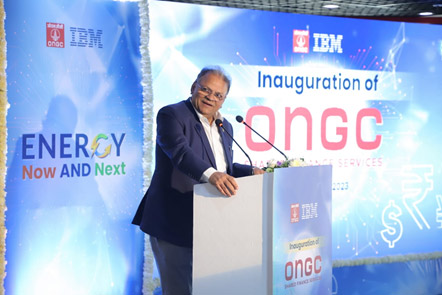
“It is important for us to make the transition now and here at this point because ONGC’s resources should be progressively deviated to New Energy only. In tandem with the fact of becoming an Energy domineering company, we have no time left before adapting to green energy and Net Zero by 2038. ONGC is good at learning from within. This shared services model is an opportunity to learn from outside as well. The mantra is retaining the strength that we have but also looking out where we can to grow.
The creation of ONGC Shared Finance Services (SFS) is intended to centralize and standardize all vendor payments of the Energy Maharatna, accelerating the processes for an enhanced 360-degree vendor experience. SFS will serve as a centralized hub for processing vendor invoices, updation of vendor master information and promptly addressing vendor queries through a digital assistant and ticketing tool that has been deployed by IBM Consulting. It has been created to establish uniform standardized processes to enhance operational efficiency and improve the overall vendor experience. It is significant to mention that the initiative was completed within 69 days, 20 days ahead of schedule.
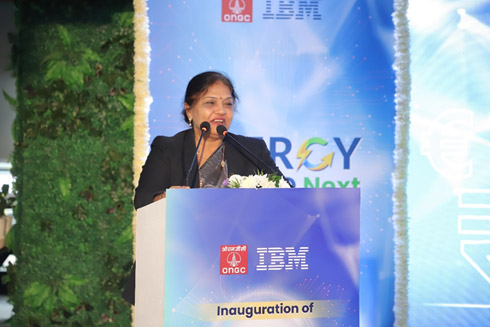
Deliberating on its capabilities further, Director (Finance) Pomila Jaspal mentioned that consolidation of our payments was necessary as we are not able to contribute to other areas of finance. “We depend on our vendors. They are an integral part of our business. During our recent Vendor Meet that took place in Mumbai, the vendors pointed to certain challenges, especially delays in payments. Hence, fast-tracking the process through Chatbots and AI was mandatory so that the vendors don’t get distracted. Apart from efficiency, this new facility has improved record-keeping through digitalization, it is user-friendly and lays a foundation stone for more vendor-friendly innovations in the future. For one company, there should be one payment system,” she added.
SFS adopts a hybrid workforce model, co-locating ONGC and IBM Consulting resources in a harmonized environment to foster growth and operational efficiency with best practices. Additionally, SFS incorporates digitalized compliance processes, handling centralized compliance for TDS under the GST and Income Tax Act. Centralization brings ease of business through a Single TAN and centralized forex activities. System-driven concurrent audit processes and tax compliance measures demonstrate the SFS's commitment to transparency and adherence to regulatory standards. With a mix of tools such as a user-friendly robotic chatbot, email responses and a dedicated helpline, tokens will be created for unresolved queries, aiming to resolve them within a 48-hour timeframe.
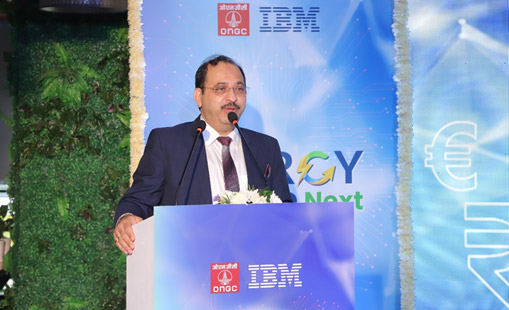
Lauding the experience of collaborating with ONGC, Mr Singhani from IBM expressed that the Fortune 500 Company has always been at the forefront of innovation. “The basic tenets of this business are its scalability, data security, and simplification of business processes that ultimately lead to operational efficiency. Including operations with the Government of India, most financial systems working across the country involve IBM’s elements.” He also noted that IBM has a stronghold in strategy and promised to “bring AI in a couple of years for this application as well”.
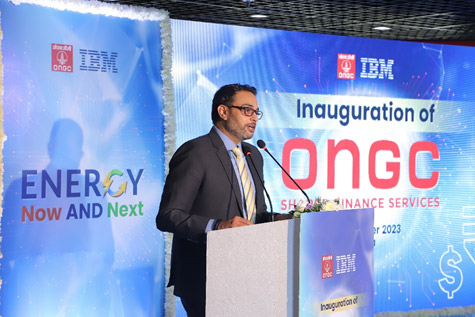
Meanwhile, IBM Senior Partner Sachin Verma, in his welcome address, also stressed that it is a historic occasion that two Fortune 500 companies are coming together to build a sustainable future. “It holds importance in the digital journey, energy efficiency, transparency, and a better vendor experience,” Mr. Verma said.
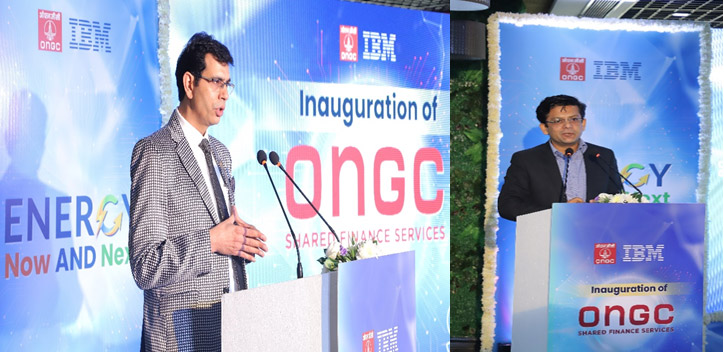
The initiative reflects ONGC's commitment to transparent uniform processes, stakeholder satisfaction, and collaborative growth. The anticipated advantages of the SFS include speedier processing of vendor payments, improved record-keeping, enhanced efficiency, and enriched vendor relationships. Lastly, SFS signifies a commitment by ONGC and IBM to continuous process improvements and lays the foundation for exploring similar stakeholders-friendly initiatives in the future – such as intelligent workflows and business operations powered by generative AI.
